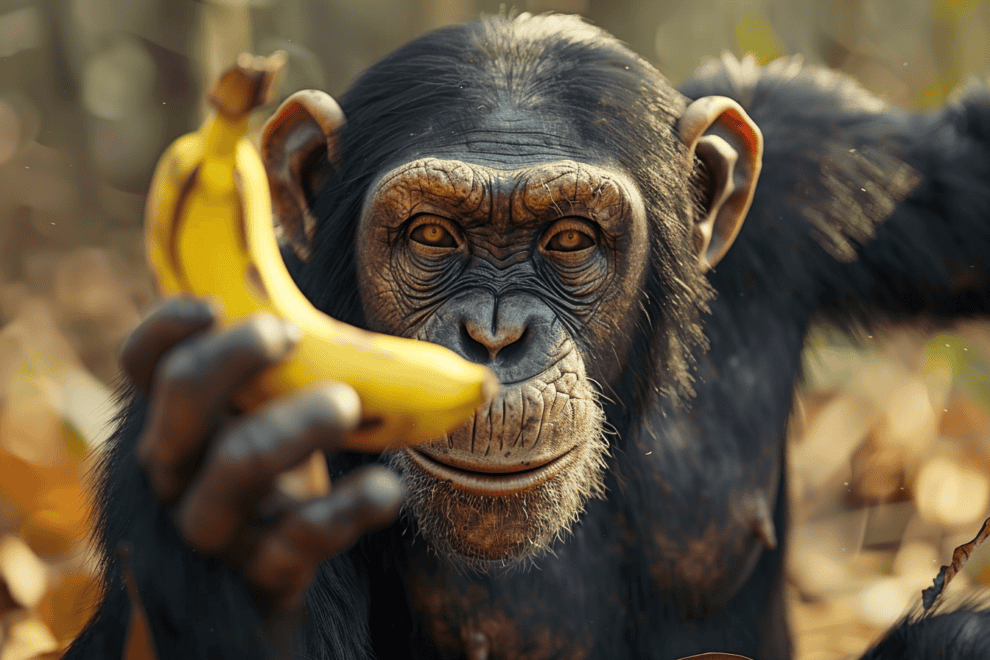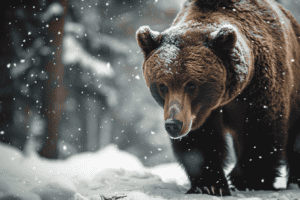Chimpanzees are one of the most intelligent and fascinating primates out there. They share almost 99% of their DNA with humans, making them our closest living relatives.
Altruism is the act of selflessly helping others, even when there is no direct benefit to oneself. The fact that chimpanzees exhibit this behavior is not only intriguing but also sheds light on the evolution of prosocial behavior in humans.
Researchers have observed chimpanzees performing acts of kindness towards each other, even when they are not related. They have been known to share food, groom each other, and even console each other during times of distress.

These behaviors are not just limited to captive chimpanzees in zoos or sanctuaries. Chimpanzees in the wild have also been observed exhibiting altruistic behaviors.
They have been known to go out on risky patrols to protect even non-kin members of their community.
This kind of cooperation and selflessness is the foundation of human civilization, and the fact that chimpanzees exhibit these behaviors too is truly remarkable.
Understanding Altruism in Chimpanzees
Chimpanzees are known for their ability to share and cooperate with each other. This altruistic behavior is not only limited to kin but also extends to unrelated individuals.
Scientists have observed that in the wild, chimpanzees share food, groom each other, and even console each other when upset.
Studies have shown that chimpanzees display empathy towards others in distress, which is a key factor in their altruistic behavior. They also have a sense of fairness and are more likely to share with those who have shared with them in the past.
While chimpanzees and humans share many similarities in their altruistic behavior, there are also some differences.
For example, young children and human infants have been shown to display altruistic behavior towards strangers, while chimpanzees are more likely to share with those they have a relationship with.
Another difference is that humans are more likely to engage in prosocial behavior, which involves helping others without any expectation of reward.
Chimpanzees, on the other hand, are more likely to engage in reciprocity, where they expect something in return for their help.
In one study, chimpanzees were more likely to share food with a partner who had helped them previously, even if it meant giving up their own food.
Chimpanzees in Action

Chimpanzees are known for their altruistic behavior, which is the act of helping others without expecting anything in return. They have been observed helping other chimps in need, even if they are not related.
In one study, researchers found that chimpanzees will give up a treat in order to help out an unrelated chimp.
This kind of behavior is not just limited to captive chimps; wild chimpanzees have also been observed going out on risky patrols to protect even nonkin at home.
This kind of helping behavior is not just limited to chimps. Human infants have also been observed showing concern for others in distress. They even attempt to respond to the emotional needs of others, even at a young age.
Experimental studies have shown that young children exhibit altruistic behavior, just like chimpanzees.
The Role of Empathy
Empathy is the ability to understand and share the feelings of others. It is a crucial aspect of social cognition, which is the ability to understand and navigate social situations.
Empathy is also a key component of altruistic behavior.
Studies have shown that both chimpanzees and human infants exhibit empathy towards others.
Chimpanzees have been observed showing empathy towards others in distress. They will comfort and console other chimps who are upset or in pain.
This kind of behavior is not just limited to chimps; other animals, such as elephants and dolphins, have also been observed showing empathy towards others.
Biological Roots of Altruism In Chimps

Altruism, the act of selflessly helping others, is not unique to humans. Chimpanzees, our closest living relatives, also exhibit altruistic behaviors. But what drives this behavior?
Biologically, altruism is rooted in our genes. Scientists have identified specific genes that influence altruistic behavior. For example, the oxytocin receptor gene has been linked to increased empathy and social bonding in primates, including chimpanzees.
However, genes alone cannot explain the evolution of altruism. Natural selection, the process by which organisms with advantageous traits survive and reproduce more successfully, also plays a role.
The Evolutionary Perspective
According to the evolutionary perspective, altruism evolved because it provided a survival advantage to our common ancestor. For example, early humans who cooperated and shared resources were more likely to survive and pass on their genes.
Chimpanzees also exhibit cooperative behaviors, such as sharing food and grooming each other. These behaviors are thought to have evolved because they increase the chances of survival for the group as a whole.
However, not all altruistic behaviors can be explained by natural selection. Some behaviors, such as donating blood or organs to strangers, do not provide any immediate benefit to the donor. These behaviors may be driven by social norms or personal values.
Research Highlights from Ngamba Island

Research on chimpanzees at Ngamba Island Chimpanzee Sanctuary in Uganda has revealed fascinating insights into the altruistic behaviors of these primates. The sanctuary is home to over 50 chimpanzees, and researchers have been studying their behavior for years.
One of the most interesting findings is that chimpanzees are capable of showing empathy towards their fellow primates. This means that they can understand and feel the emotions of others, and respond accordingly.
For example, if one chimpanzee is injured, others will often come to its aid, offering comfort and support.
Another observation is that chimpanzees will sometimes share food with others who are hungry, even if they are not related. This is a clear example of altruism, as the chimpanzee is putting the needs of others before its own.
Insights from Experimental Evidence
Experimental evidence has also shed light on the altruistic behavior of chimpanzees.
In one study, researchers found that chimpanzees would help others even when there was no immediate benefit to themselves. This suggests that chimpanzees may have a sense of morality, and are capable of acting on it.
Frans de Waal, a renowned primatologist, has conducted numerous studies on the behavior of chimpanzees. He has found that they are capable of forming strong social bonds, and will often help each other in times of need.
Frequently Asked Questions

How do chimpanzees demonstrate their care for others in their groups?
Chimpanzees are highly social animals that live in large groups. They demonstrate their care for others in many ways.
For example, they groom each other regularly, which helps to build and maintain social bonds. They also share food with each other, especially during times of scarcity.
Chimpanzees have been observed to console each other when they are upset, and they will even defend weaker members of their group from aggression.
Can you share some heartwarming stories of chimpanzees showing kindness?
One heartwarming story of chimpanzees showing kindness comes from the Gombe Stream National Park in Tanzania. In the 1970s, a young chimpanzee named Mel was orphaned when her mother died. Other members of her group took care of her, carrying her around and sharing their food with her.
Another story is of a chimpanzee named Ponso, who was rescued from a research facility in Ivory Coast. He now lives on an island with other chimpanzees, and he has been observed to comfort and groom his new friends.
What kind of help do chimpanzees offer to humans and why?
Chimpanzees have been trained to perform a variety of tasks to help humans, such as using sign language to communicate and assisting with mobility for people with disabilities.
They are highly intelligent and can learn to perform complex tasks with ease. Additionally, studying chimpanzees has helped scientists to better understand the evolution of human behavior and cognition.
In what ways do young chimpanzees learn to show compassion to others?
Young chimpanzees learn to show compassion by observing the behavior of their mothers and other members of their group.
They learn to groom and share food with others, and they also learn to console and defend weaker members of their group.
As they grow older, they continue to refine these skills and develop new ones, such as using gestures and vocalizations to communicate with others.
How does the behavior of chimpanzees challenge our understanding of animal empathy?
Chimpanzees’ behavior challenges our understanding of animal empathy because they demonstrate a range of complex emotions and behaviors that were once thought to be unique to humans.
For example, they have been observed to console each other when they are upset, and they will even help others without any expectation of reward.
This suggests that chimpanzees are capable of experiencing empathy and altruism, which are typically thought to be uniquely human traits.
What research findings suggest about the motives behind chimpanzees’ altruistic acts?
Research findings suggest that chimpanzees’ altruistic acts are motivated by a combination of factors, including social bonding, reciprocity, and empathy.
For example, chimpanzees are more likely to help others who have helped them in the past, suggesting that they understand the concept of reciprocity. They are also more likely to help others who are closely related to them, suggesting that social bonding plays a role in their behavior.
Finally, they have been observed to console others who are upset, suggesting that they are capable of experiencing empathy.









